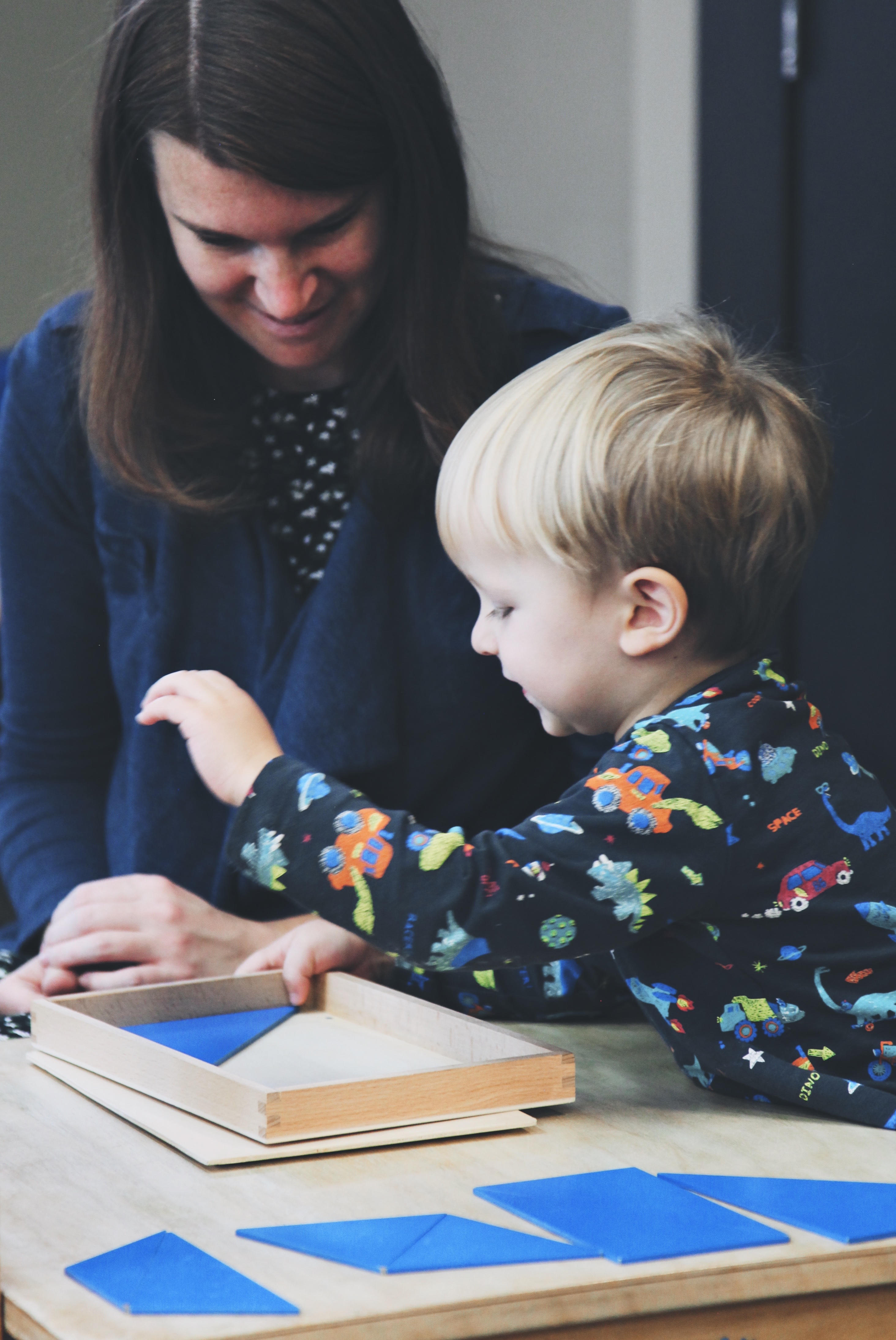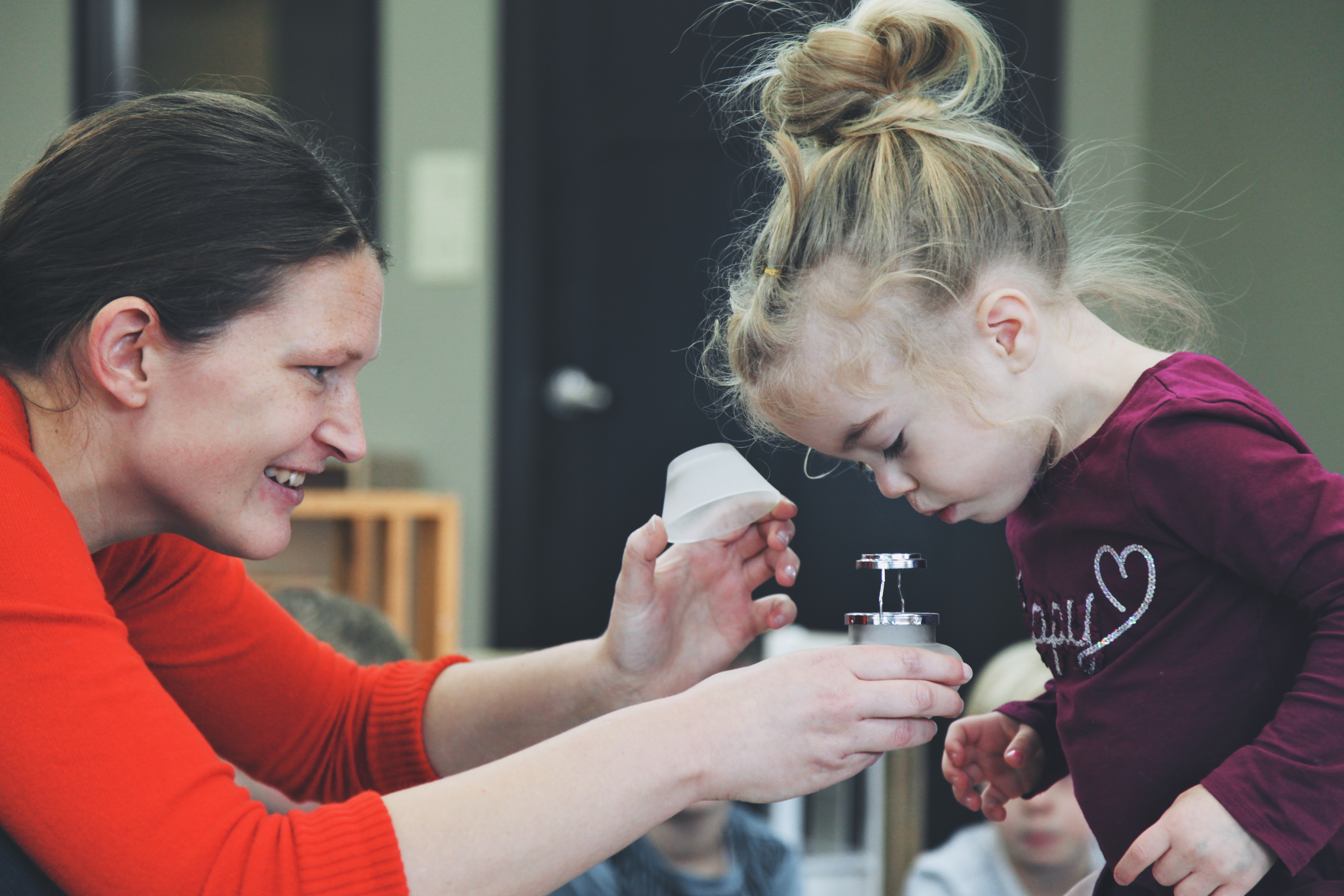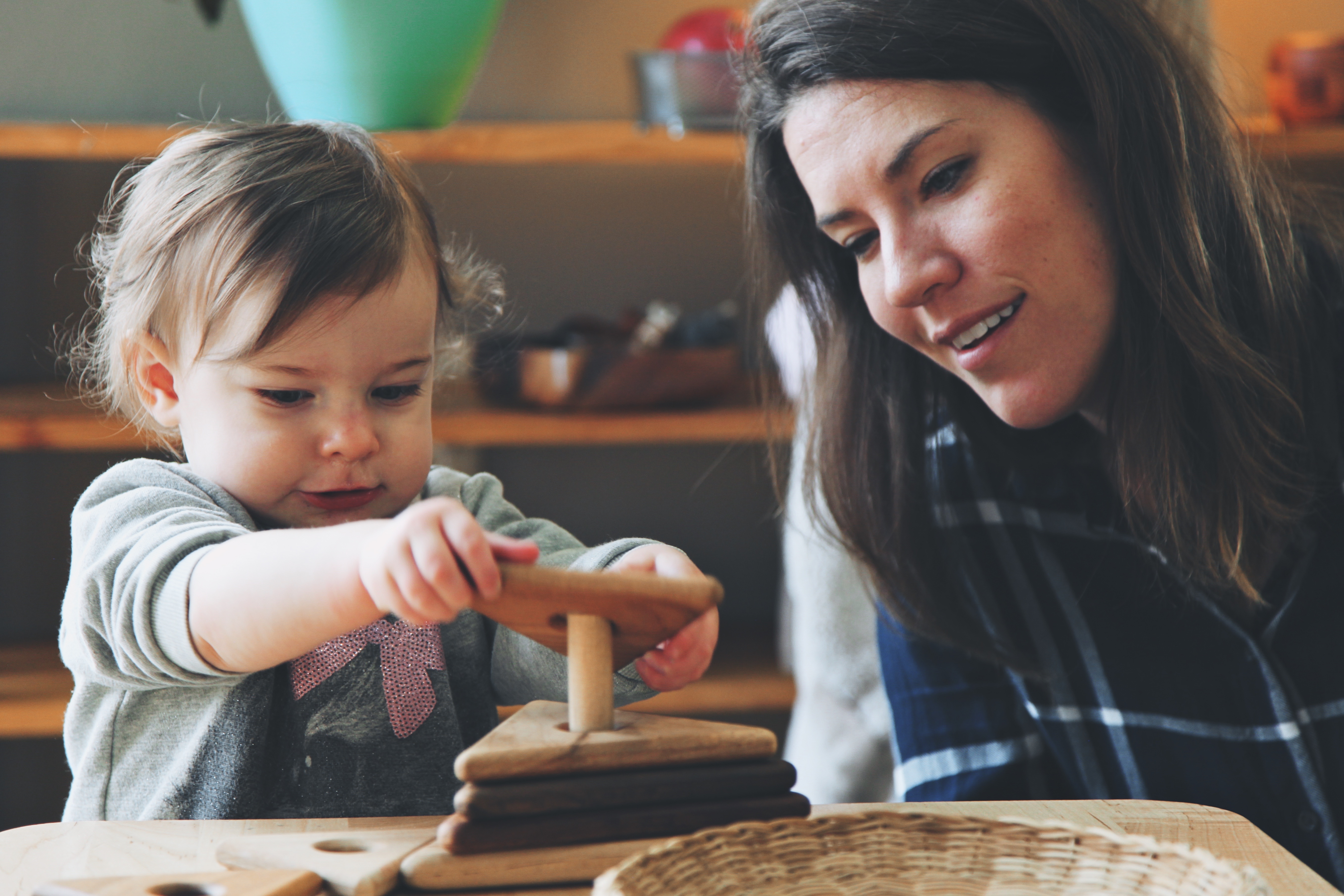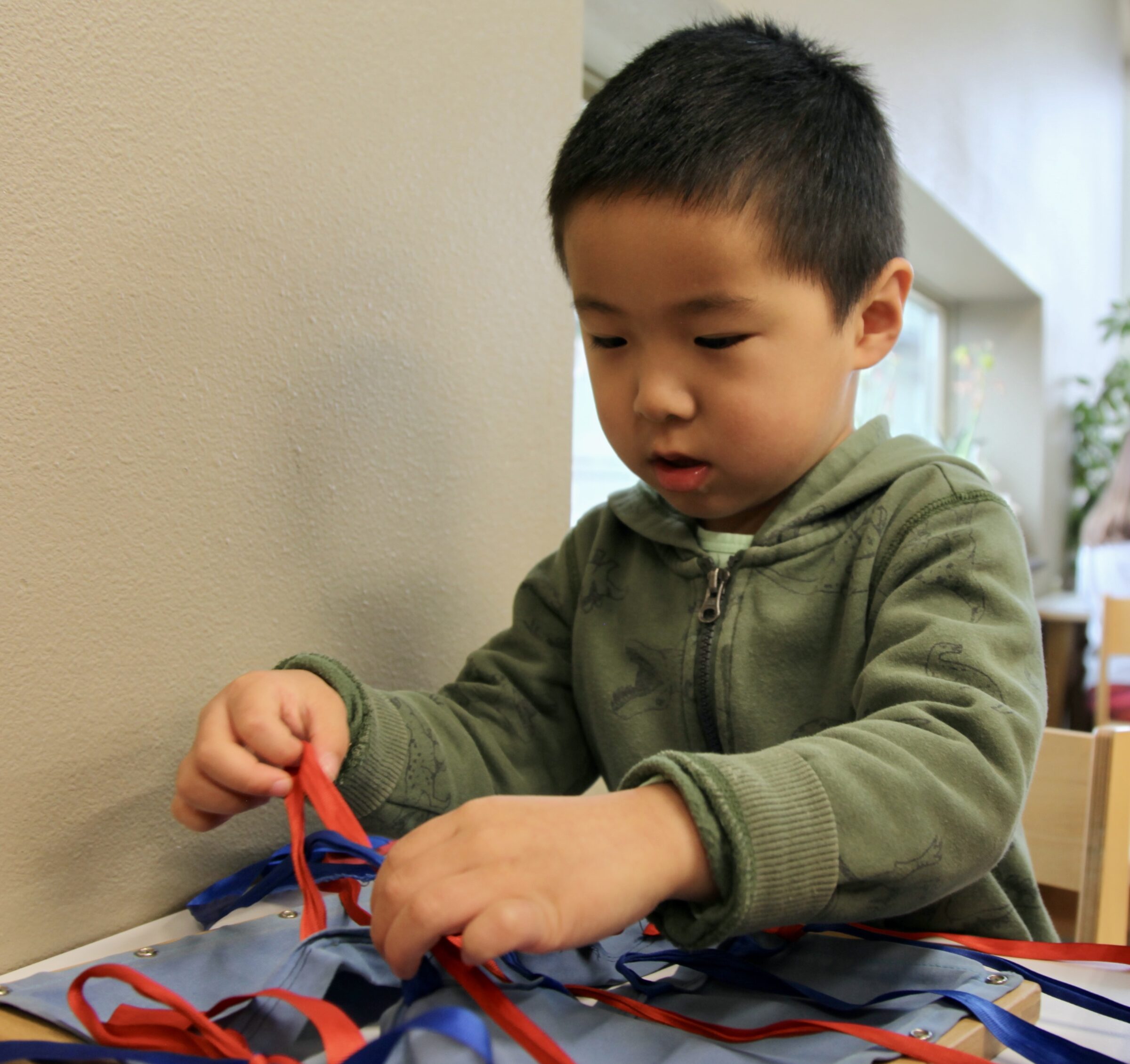Words of Encouragement
Podcasts
We were recently asked, what’s the difference between “Good Job” and “Congratulations?”
We were so struck by this fantastic, big question, we also recorded a podcast. Scroll to the bottom of this post, or subscribe on iTunes.
The difference is huge. One is a phrase we use all the time, and one kind of makes us uncomfortable, we try so diligently not to use it.
But why?? Aren’t they, really, the same? Why do we see one as relationship building, and the other as creating a dependence or as undermining the child? Why is one “wrong?”
We use words of encouragement all the time. Affirmations are relationship-building. I see you, I know you, and I love you. You did it! You used all the colors! Wow, you look so proud of yourself! Thank you for sharing that! I’m so glad you’re here!
In Montessori, we sometimes get a bad reputation for not praising a child, so we can be perceived as cold, strict, or unfeeling.
If a child doesn’t feel cared for, doesn’t feel safe and secure and supported, if there isn’t a strong basis of trust between adult and child, academics are moot. Trying something new is a risk, being vulnerable and willing to take chances in learning, struggle with something new longer than is comfortable, help others as well as helping yourself, all these are innate to a Montessori classroom because there is trust and respect.
This is earned through being consistent, patient, reliable, and affirming. Affirmations, though, are different from Praise.
Affirmation is “I see you.” Praise is “I approve of you.”
Let’s think about the times we would say “congratulations” to an adult peer. When someone gets a promotion, or announces there’s a baby on the way, or they’re getting married, or buying a house, or has completed some feat. All times for congratulations. I’m so overjoyed for you, thank you for sharing your joy with me!
“Good Job!” in these situations might be a bit strange. A coach might say “good job” when you complete the hurdles when you’ve implemented a new technique. A boss might say “good job” when you really knocked the presentation out of the park. You might say “good job” to someone you’ve hired for a remodel. All these are times where approval is valuable (since a coach is helping you to improve, a boss signs your checks, and you hired the carpenter for a specific purpose and it’s their goal to complete the job well), and the person saying “good job” had something to do with the results.
We don’t use “good job” in the classroom for a couple reasons.
The major goal, the end result (and point of departure, but more on that for a different day!), what we are every day incrementally marching toward, is independence. A child able to meet many of her own needs, and perhaps some needs of others. Walking is an independence. Eating and speaking are feats of independence. Reading is a major milestone in moving toward academic independence. We think of independence as moving out of the house, but these independences that are achieved before Elementary school are dramatically impactful to a child’s life.
When I say “good job,” I’m creating dependence. Do you think I did a good job? Did I do it right? Did I do enough?
We ask a child, what do you think? Are you satisfied with your work? Does this look tidy to you? Did you try your hardest? We help a child to notice, to raise the bar just a little bit every day, moving toward higher levels of achievement, but it’s not toward my satisfaction. You don’t fasten a Button Frame until I think you’re done, or trace a Sandpaper Letter until I think it’s perfect, or complete a set of multiplication equations I deem appropriate, it’s for you. We might point out, oh, I think you might have missed one! If the Button Frame is returned with a loose straggler, but that’s different from, I have decided you are not yet finished, you have not yet done a Good Job.
With so many materials, we’re helping a child to refine their perception and precision. Each piece in the Cylinder Block has one spot. There is One Correct way to put away the Trinomial Cube. The red Color Tablet has only, exactly, one perfect match.
We’re helping a child learn so many things. That it’s okay to make mistakes. That mistakes can be corrected, through a bit more time or through asking for assistance, and that it’s important to correct a mistake. To trust your own intuition, your own sense of the world. We’re helping children create inner order and inner discipline, and this is rooted in trust.
We’re not teaching children to check in with us every time they complete a task, did I do it right? Is it correct? Am I done?
It’s subtle, but it’s important, this difference between “congratulations” and “good job.” With our words, we’re helping to create both a strong relationship, and a strong child.
Written by:
Charlotte Snyder







